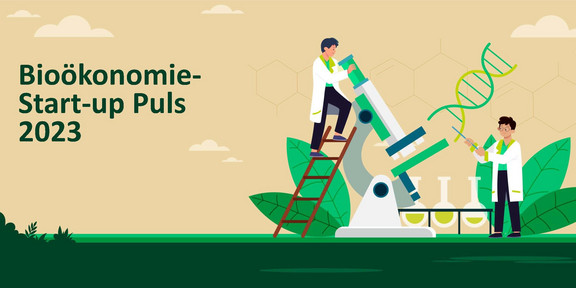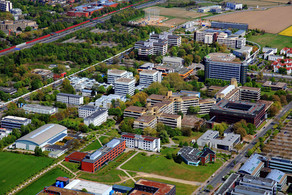The Role Start-ups Play in Structural Change of the Rhenish Lignite Mining Region
- TU News

Bioeconomy describes a sustainable form of economic activity that is based on biological resources. It encompasses all industries that produce, process or use biological resources. The bioeconomy was identified as a potential economic field for the Rhenish mining region. The start-ups that the TU team interviewed for the new report develop such things as innovative test platforms for new types of crop protection products, produce new functional carbohydrates from sugar beet, or cultivate local and sustainable seafood.
“With their innovative and sustainable approaches, bioeconomy start-ups can make a significant contribution to building a future industry in the Rhenish mining region and positively shaping it as a business location,” says Prof. Strese. They create jobs and allow new professional fields to emerge in the region and are magnets for skilled workers and other companies. The “Bioeconomy-Start-up Pulse” report also highlights their central challenges and thus provides an essential basis for decision-makers to establish the right framework conditions and develop the necessary support offerings.
According to the report, the growth of bioeconomy start-ups in the Rhenish mining region is currently still significantly behind the national cross-industry start-up growth trend. This is due in part to the fact that 51% of the start-ups surveyed rely on analog business models, whereas less than 10% of all start-ups in Germany rely on analog business models, and more than 65% on digital business models, which can be scaled much more quickly. Half of those surveyed see the lack of commercial and laboratory space as well as pilot plants in the Rhenish mining region as one of the biggest challenges for bioeconomy start-ups. Moreover, seed and growth financing poses major challenges for the surveyed start-ups due to capital-intensive research and development as well as longer development times. Structural change itself, the offer of start-up support and proximity to universities are cited as opportunities. Start-ups benefit from local university graduates who they can recruit as new employees. There are also opportunities for collaboration with researchers to work on joint innovations.
The “Bioeconomy-Start-up Pulse” report will now be published annually. The TU Dortmund University team prepared the report as part of the large collaborative project Research Network Model Region Bioeconomy in the Rhenish Mining Region, which is led by RWTH Aachen University and the Research Center Jülich and funded by the Federal Ministry of Education and Research as part of the national bioeconomy strategy.
Contact person for queries:



